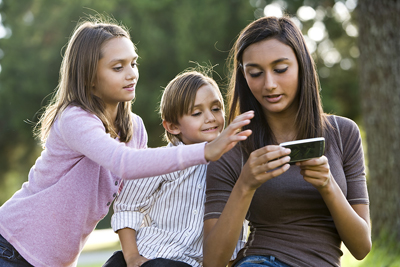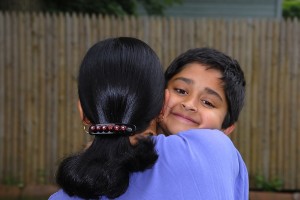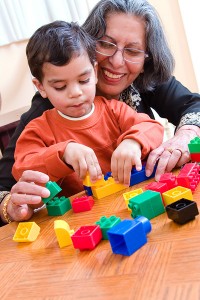By Swapna Thomas @themomviews and online at: themomviews.com
“There is a market for moral values-” from Raising
Positive Kids in a Negative World by Zig Ziglar.
 As I was reading the book this line stuck in my head. In today’s world when we have to face dishonesty, corruptions, lies and greed at every step of our life, morality has taken a backseat in our minds. Even as a parent, I have caught myself thinking – Oh my daughter is such a simpleton, people will misuse it when she grows up. Somewhere along the lines honesty, straightforwardness, grace and especially generosity have been forgotten as the fundamental tenets of success. Words like go-getter, unscrupulous, demanding etc. have now become the benchmarks of the successful.
As I was reading the book this line stuck in my head. In today’s world when we have to face dishonesty, corruptions, lies and greed at every step of our life, morality has taken a backseat in our minds. Even as a parent, I have caught myself thinking – Oh my daughter is such a simpleton, people will misuse it when she grows up. Somewhere along the lines honesty, straightforwardness, grace and especially generosity have been forgotten as the fundamental tenets of success. Words like go-getter, unscrupulous, demanding etc. have now become the benchmarks of the successful.
Today we are living in a complex world where our culture, media, books and even education is becoming self-oriented and individual-centric. There is an inherent sense of entitlement and even though we are surrounded by people who are far less fortunate and underprivileged than us, we continue to live in our bubbled existence and proclaim security from all negativity.
How do you raise generous children in such an environment? Although it looks difficult, following these five simple, doable steps will help you to live the saying “it is better to give than to receive” in the truest sense.
Be a giver
We parents should always tell our children to “do as I do” and not “do as I say”. Unless we demonstrate generosity and a giving attitude in our daily life, we cannot expect the kids to assimilate these values. Babies are born selfish who are only concerned about their basic needs; it is up to the parents who are the primary shapers of a child’s attitude about life, money, things and desires to help them become generous, thoughtful and thus, happy kids.
In our family we religiously follow the “10% of income to charity” dictum. But it does not have to be monetary all the time. Giving time to a shelter, sharing toys with kids who don’t have any, letting someone deserving get ahead of you in line at the grocery store are all examples of generous behavior which a child will observe and repeat when the opportunity presents itself. Kindness and a giving attitude should be a natural way of living.
 Create intentional opportunities
Create intentional opportunities
We have another simple rule at our house; any chocolate that comes into the house must be equally divided among all the family members. My three-year-old has never questioned this and in fact even if a chocolate finds its way to her without my knowledge, she will come and share it with me and the others. I would like to believe that this is due to the sharing attitude we show her at all times.
There are many ways to create a “giving” opportunity. Even a playdate, where the child must share his toys and belongings with someone is an opportunity. Make philanthropy a family affair by signing up for as volunteers for a kids’ shelter or an animal rescue home. There are so many programs and projects which collect clothes, food, toys etc. for the needy. Involve your kids in the sorting process so that they can ask questions and discuss their thoughts about the experience. As kids grow older encourage them to enrol in Boy/Girl scouts, youth government, missions etc.
Discuss needs vs. wants
 Our approach to the eternal struggle between needs and wants might lay down the way our children’s future shapes up. When the distinction between needs and wants blur, kids grow up feeling over-privileged. As grown men and women they might have to face a harsh reality that the world does not necessarily revolve around them.
Our approach to the eternal struggle between needs and wants might lay down the way our children’s future shapes up. When the distinction between needs and wants blur, kids grow up feeling over-privileged. As grown men and women they might have to face a harsh reality that the world does not necessarily revolve around them.
Talk openly about poverty, inequality and most importantly money with your kids. In South Asian communities money has often been a topic left for adults to discuss but it is very important to involve children in dialogues regarding money or the lack of it. Facts like “1.5 billion people in the world live on less than a dollar a day” should not be relegated to the front page of the newspaper but be deliberated in the family living room too.
Of course, it is important and fun to fulfil some of the wants too but remember needs can be fulfilled but you cannot ever satisfy wants. Even if you can afford it, say NO to some of the things your child wants. I have had a difficult time with this one, every time I used to go out without my daughter; I had to buy something for her. Call it mommy guilt or whatever, but it fostered a sense of entitlement in my daughter and she would demand and even throw a tantrum if I forgot to bring something for her. This served as a wake-up call and now I don’t buy something for her every time we go out and she is more than content with mom’s big hug.
Appreciate the positive
Praise your kids (generously) whenever they do something nice for others. For kids it might be helping with the dishes, setting the table, giving the last cupcake to their sister or even letting another child sit in mamma’s lap.
Kids love to please their parents and when they see their sharing, generosity and kindness pleases you, they are more likely to repeat it next time, even if you don’t remind them. If you happen to see someone else demonstrate generosity and kindness, point it out to your child and praise that person lavishly.
Understand their feelings
 It is not easy for a toddler or a pre-schooler to understand what being generous means. Sometimes they might feel resentful for having to give away some toy or share their favourite ice cream. Deal with these issues in an understanding and compassionate way.
It is not easy for a toddler or a pre-schooler to understand what being generous means. Sometimes they might feel resentful for having to give away some toy or share their favourite ice cream. Deal with these issues in an understanding and compassionate way.
Never force your child for sharing something that he doesn’t want to. It will only serve to make them oppose more. Try to look for reasons behind their attitude, may be you have shifted house recently or there has been a loss of a loved one. Rough transitions almost always lead to clingy behavior and this is not the time to dole out the giving lessons. Support them through the changes and emotions and talk about this at a more appropriate time.
Don’t be too hard on yourself if kids sometimes fight over things or refuse to share. Parenting means doing the best you can and leaving the rest to god. In the end, you will find that your selfish pre-schooler has grown up to become a kind hearted generous person.
How do you teach your kids to be generous and thoughtful human beings? I would love to hear your thoughts through the comments below.
 More About Swapna:
More About Swapna:
Swapna is a Stay-At -Home mom to a baby girl Samaira, living in New Dehli, India. She can be found blogging at themomviews.com, a blog chronicling parenting tips, product reviews, fun activities for kids, decor ideas and interesting tidbits for parents.



Thanks you for sharing your thoughts on these issues. As a new mom, I always wonder “how can I ensure my daughter will grow up being principled and having good values” and although there is no guarantee, the best I can do is exemplify how I want her to be … “do as I do”.
Thank you Nisha for your lovely comment. You are so right in saying that “do as I do” is the best way in teaching moral values to children. Kids are always observing their environment and learning from it, the onus is on the parents to make that environment as conducive to these values as possible.
I loved this article! Some parts of our society has become materialistic and “me” focused.
I have a 8yr old daughter and 5 yr old son. We started to instill the value of giving at a young age. When my daughter was 5 we had a “no-gift” policy for her birthday (she got one large gift from the family). Instead her friends were asked to make a $10 donation if they wished to Spread the Net (a UNICEF program to prevent malaria). It was so much better than getting several small gifts — hard to find a place for all these gifts in our small house.
Echoage.com has made giving much easier for birthdays. Kids can choose their charity. Friends can donate online — half the money goes to your child for a gift, the other half goes to the charity.
We also talk about looking out for our neighbours and the idea of being an active part of your community.